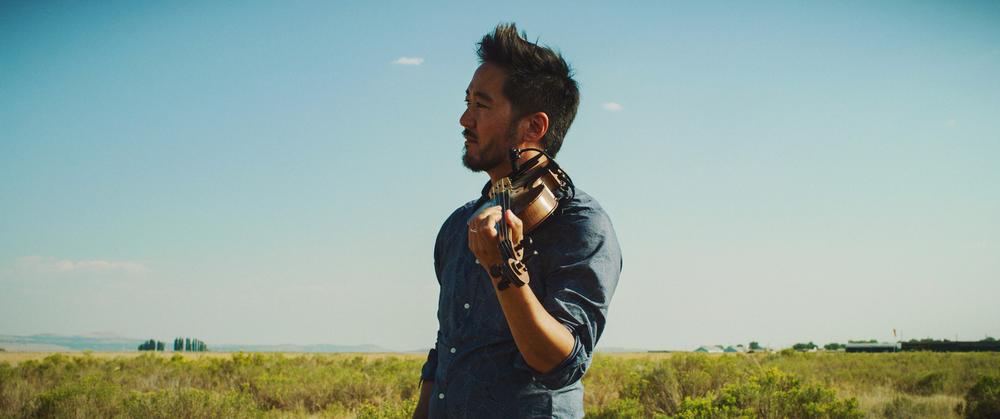Section Branding
Header Content
On 'Omoiyari,' Kishi Bashi Transcends Time — And Politics — With Compassion
Primary Content
Kishi Bashi made a name for himself with the shiny, fantastical indie pop of his first three albums. (The singer and multi-instrumentalist also made a pseudonym for himself: his stage name is a mashup of his first initial – K, for Kaoru – and last name, Ishibashi.)
Ishibashi's newest record Omoiyari takes a more sober turn. From Japanese, "omoiyari" roughly translates as compassion or kindness shown toward others, which stirred in the Athens-based musician after President Trump's administration placed a travel ban on people from specific, predominantly Muslim countries.
“I personally felt uncomfortable as a minority for the first time when all these executive orders were going out," Ishibashi told On Second Thought. "I saw direct parallels to the incarceration."
The ban propelled Ishibashi to another moment in American history: the internment of 120,000 Japanese Americans during World War II. He wrote music for Omoiyari while doing field research at the sites of former internment camps around the U.S.
"In these camps, you were discouraged from speaking Japanese ... Japanese books were banned unless they were Bibles," Ishibashi said. "Being forced to kind of hide your own culture and your origin, that’s extremely painful for me – because I love speaking Japanese, I love the culture, I love the food, and to suppress something that’s a part of you is ... extremely painful."
Omoiyari, which is also the title of a songfilm Ishibashi has planned for next year, meditates on the pain and feelings of hopelessness incarcerees felt, but also on universal themes like love, loss and desire. The album also channels the musician's own hopefulness for a country that in the future will be more inclusive and compassionate.
"One of the things that I realized as an artist is that my job is to provide healing and not discord, and I think that's really my impetus for making this album," Ishibashi told On Second Thought. "I feel invigorated for finding that purpose."
Kishi Bashi is playing tonight, Sept. 26, at Variety Playhouse, first he joins On Second Thought.
Get in touch with us.
Twitter: @OSTTalk
Facebook: OnSecondThought
Email: OnSecondThought@gpb.org
Phone: 404-500-9457



